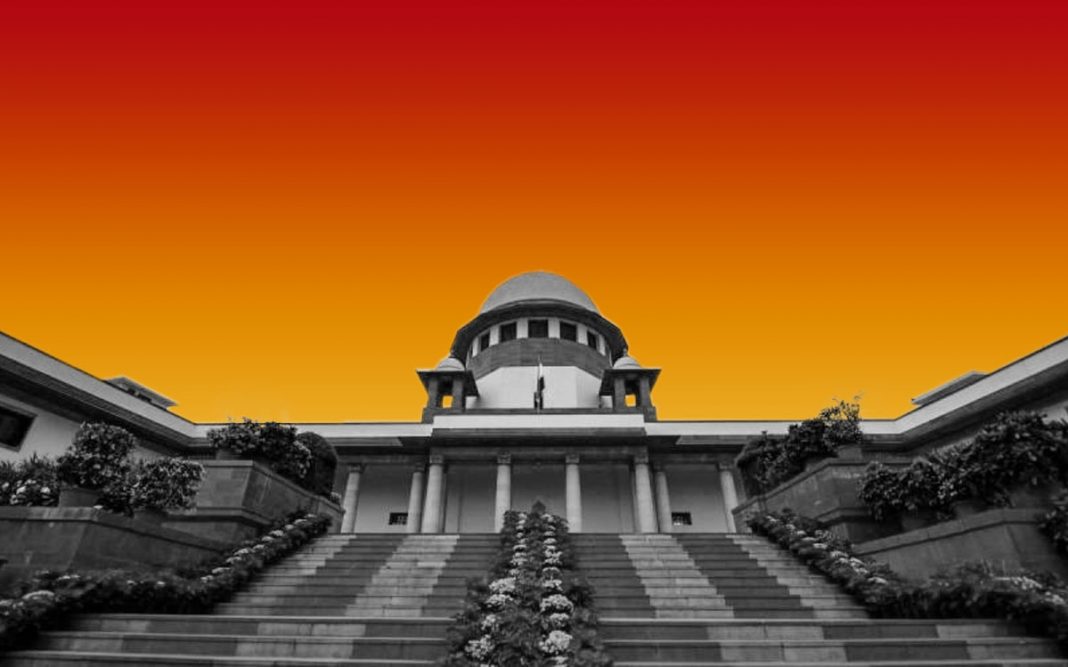The Supreme Court on Tuesday dismissed a petition filed by an NRI, whose stay in India was involuntary extended on account of Covid-induced lockdown and suspension of international air travel, challenging the notification issued by the Central Board of Direct Taxes (CBDT), alleging that it had placed him in the pernicious position of losing his ‘non-resident status’ for the purpose of Indian Income Tax Act, 1961.
The petitioner, a Non-Resident Indian, had questioned and challenged the Office Memorandum dated March 3, 2021, issued by the Central Board of Direct Taxes.
The bench, comprising Justices Uday Umesh Lalit, S. Ravindra Bhat and Bela M. Trivedi, stated that there was a transport bubble system created for such passengers, which the petitioner could have availed.
“We won’t entertain such petition unless and until you show us that you are completely powerless and confined to the shores of this country, then only we will consider the matter from the stand point of Article 32 but if this is the situation, the transport bubble was created from July 1 onwards and yet you chose not to avail, that is the matter to go into individual cases,” noted the Court.
Advocate Abhishek Singhvi, along with a Senior Advocate, submitted that the bubble system created was only available after 91 days of the start of April 2020 financial year, now benefit of 91 days is not being given.
The petition prayed for a direction from the Ministry of Finance to consider a representation for treating him as an NRI for FY 2020-21. The petitioner submitted that he arrived in India on March 6 and was compelled to extend his stay in India, later he was able to leave the country on October 5, by that time his stay in India (Financial year 2020-21) had already crossed a period of 182 days due to the lockdown imposed in India.
In view of Section 6 of the Income Tax Act, the petitioner qualifies to be a resident in India and liable to be taxed on his global income in India. The petitioner said he is an NRI, presently based in Dubai, UAE (Tax neutral state), working as an Accounting Manager with Kuber Trading FZE.
One of the incentives offered by the UAE to attract migrants from high tax countries such as India is that it is a ‘Zero Income Tax’ country. There are several other countries where no income tax is levied, such as Bahrain, Brunei, Oman, Qatar and Kuwait. As per the data available by the Ministry of External Affairs, there are about 60 lakh Indians residing in these countries alone, out of which around 34 lakh reside in UAE.
Also Read: Supreme Court defers hearing of revision plea of Red Fort attack convict Mohammad Arif
As per the Indian Law, residency status is principally determined in terms of Section 6 of the Income Tax Act, which states that Indian citizens/persons of Indian Origin Abroad for employment, to be regarded as a resident in India, two of these conditions are required to be established.
Firstly, if he is in India in that year for an aggregate period amounting to 182 days or more, secondly it he has an aggregate stay of at least 365 days in India in the course of four years preceding the accounting year and presence in the India in the accounting year for an aggregate period of at least 120 days in case. The person has domestic income exceeding Rs 15 lakh or at least 182 days in cases outside India having income up to or less than Rs 15 lakh.


